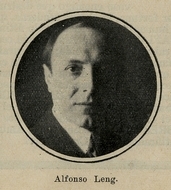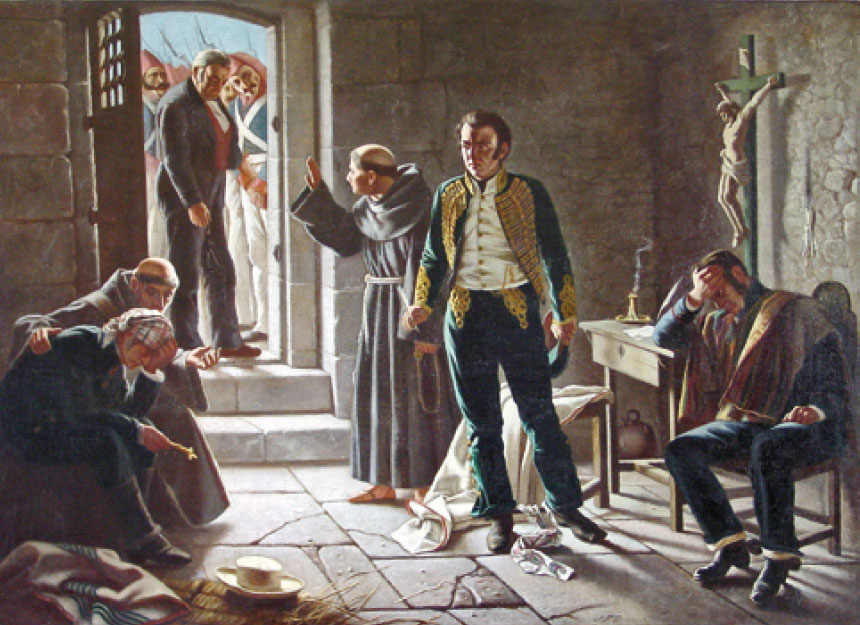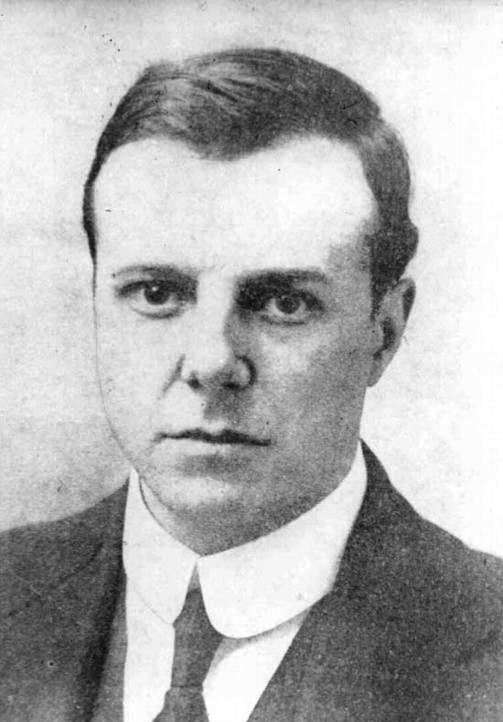|
Diego Dublé Urrutia
Diego Dublé Urrutia (Angol, Región de la Araucanía; 8 July 1877-ibídem, 13 November 1967) was a Chilean poet, painter, and diplomat. He won the Chilean National Prize for Literature in 1958. Early life and education He was the son of Teodorinda Urrutia Anguita and Baldomero Dublé Almeida. The latter, an engineer and Lieutenant Colonel in the Chilean Army, died at the Battle of San Juan and Chorrillos, in the War of the Pacific against Bolivia and Peru, on 13 January 1881. His maternal grandfather, Basilio Urrutia, was a military officer. After attending the Santiago College of Angol, the Conciliar Seminary of Concepción, and other private schools in the Angol area, Dublé Urrutia traveled to Santiago to complete his studies at the National Institute. In 1895, at 18 years of age, he received an honorable mention in the Varela Contest of Valparaíso, for a poetry manuscript entitled "Pensamientos en la tarde" ("Afternoon Reflections"). In 1897, he took a course for aspiring o ... [...More Info...] [...Related Items...] OR: [Wikipedia] [Google] [Baidu] |
Chile
Chile, officially the Republic of Chile, is a country in western South America. It is the southernmost country in the world and the closest to Antarctica, stretching along a narrow strip of land between the Andes, Andes Mountains and the Pacific Ocean. Chile had a population of 17.5 million as of the latest census in 2017 and has a territorial area of , sharing borders with Peru to the north, Bolivia to the northeast, Argentina to the east, and the Drake Passage to the south. The country also controls several Pacific islands, including Juan Fernández Islands, Juan Fernández, Isla Salas y Gómez, Desventuradas Islands, Desventuradas, and Easter Island, and claims about of Antarctica as the Chilean Antarctic Territory. The capital and largest city of Chile is Santiago, and the national language is Spanish language, Spanish. Conquest of Chile, Spain conquered and colonized the region in the mid-16th century, replacing Incas in Central Chile, Inca rule; however, they Arauco War ... [...More Info...] [...Related Items...] OR: [Wikipedia] [Google] [Baidu] |
Brazil
Brazil, officially the Federative Republic of Brazil, is the largest country in South America. It is the world's List of countries and dependencies by area, fifth-largest country by area and the List of countries and dependencies by population, seventh-largest by population, with over 212 million people. The country is a federation composed of 26 Federative units of Brazil, states and a Federal District (Brazil), Federal District, which hosts the capital, Brasília. List of cities in Brazil by population, Its most populous city is São Paulo, followed by Rio de Janeiro. Brazil has the most Portuguese-speaking countries, Portuguese speakers in the world and is the only country in the Americas where Portuguese language, Portuguese is an Portuguese-speaking world, official language. Bounded by the Atlantic Ocean on the east, Brazil has a Coastline of Brazil, coastline of . Covering roughly half of South America's land area, it Borders of Brazil, borders all other countries and ter ... [...More Info...] [...Related Items...] OR: [Wikipedia] [Google] [Baidu] |
Alfonso Leng
Alfonso Leng Haygus (11 February 1884 – 11 November 1974) was a post-romantic composer of European classical music, classical music. He was born in Santiago, Chile. He wrote the first important symphony, symphonic work in Chilean tradition, "La Muerte de Alcino", a symphonic poem inspired by the novel of Pedro Prado. He composed many art songs in different languages and important piano pieces, like the five "Doloras" (1914), which he later orchestrated and are normally played in concerts in Chile and Latin America. He won the National Art Prize in 1957. Leng was also an accomplished dentist in Santiago.Nicolas Slonimsky, ''Writings on Music'' (Routledge, 2004), , vol. 3, p.2Excerpts available As a dentist, he was the main founder of the dentistry faculty of the University of Chile, and he was eventually elected as the first dean. Leng was the nephew of composer Carmela Mackenna. References 1884 births 1974 deaths Chilean male composers Chilean dentists Musician ... [...More Info...] [...Related Items...] OR: [Wikipedia] [Google] [Baidu] |
Acario Cotapos
Acario Cotapos Baeza (30 April 1889 – 22 November 1969) was a Chilean composer. He won the National Prize of Art of Chile The National Prize of Art of Chile, was created on November 9, 1942. It was awarded yearly since 1944 and alternated the mention among Painting or Sculpture, Music and Theatre. In 1992, it was replaced by the National Prize of Chile, National Prize ... in 1960. References 1889 births 1969 deaths Chilean male composers Members of the International Composers' Guild 20th-century male composers Musicians from Valdivia {{Chile-bio-stub ... [...More Info...] [...Related Items...] OR: [Wikipedia] [Google] [Baidu] |
Alberto Ried
Alberto is the Romance version of the Latinized form (''Albertus'') of Germanic ''Albert''. It is used in Italian, Portuguese and Spanish. The diminutive forms are ''Albertito'' in Spain or ''Albertico'' in some parts of Latin America, Albertino in Italian as well as ''Tuco'' as a hypocorism. It derives from the name Adalberto which in turn derives from '' Athala'' (meaning noble) and ''Berth'' (meaning bright). People A * Alberto Abadie (born 1968), Spanish economist * Alberto Abalde (born 1995), Spanish basketball player * Alberto Abarza (born 1984), Chilean Paralympic swimmer * Alberto Abdala (1920–1986), Uruguayan attorney, politician, painter, and Vice President of Uruguay from 1967–1972 * Alberto Abengózar (born 1989), Spanish footballer * Alberto Ablondi (1924–2010), Italian Catholic bishop * Alberto Acereda (born 1965), Spanish professor * Alberto Achacaz Walakial (1929–2008), Chilean Kaweskar * Alberto Achá (1917–1965), Bolivian footballer * Alberto Aco ... [...More Info...] [...Related Items...] OR: [Wikipedia] [Google] [Baidu] |
Armando Donoso
Armando may refer to: * Armando (given name) * Armando (artist) (1929–2018), the name used by Dutch artist Herman Dirk van Dodeweerd * Armando (producer) Armando Gallop (sometimes written as Armando Gallup) (February 12, 1970 – December 17, 1996), who released material under his first name only, was an American house-music producer and DJ who was an early contributor to the development of acid ... (1970–1996), Chicago house producer * ''Armando'' (album), studio album by rapper Pitbull * Armando (''Planet of the Apes''), a fictional character {{disambiguation, hndis ... [...More Info...] [...Related Items...] OR: [Wikipedia] [Google] [Baidu] |
Juan Francisco González
Juan Francisco González Escobar (Santiago, Chile, September 25, 1853 – Santiago, March 4, 1933) is known as one of the four Great Chilean Masters and as the archetypal romantic bohemian artist of the early 20th century. He was the most prolific of the Chilean masters, leaving an estimated 4,000 works, and was also notable for being one of Chile's first modern painters. He was seen as a symbol of the new creative generation that appeared in 20th century Chile, with a style highly influenced by impressionism and local elements. From the beginning, González worked in a free and flexible manner and did not stick rigidly to any particular techniques, giving him space to express his lively and restless personality. He took his attitude towards art as an attitude towards life and was considered by his successors as great example to follow. As a master, he used to tell his students that to be a good painter, “first you must learn to observe and get excited about the colours a ... [...More Info...] [...Related Items...] OR: [Wikipedia] [Google] [Baidu] |
Manuel Magallanes Moure
Manuel may refer to: People * Manuel (name), a given name and surname * Manuel (''Fawlty Towers''), a fictional character from the sitcom ''Fawlty Towers'' * Manuel I Komnenos, emperor of the Byzantine Empire * Manuel I of Portugal, king of Portugal * Manuel I of Trebizond, Emperor of Trebizond Places *Manuel, Valencia, a municipality in the province of Valencia, Spain *Manuel Junction, railway station near Falkirk, Scotland Other * Manuel (American horse), a thoroughbred racehorse * Manuel (Australian horse), a thoroughbred racehorse * Manuel and The Music of The Mountains, a musical ensemble * ''Manuel'' (album), music album by Dalida, 1974 See also *Manny (other), a common nickname for those named Manuel *Manoel (other) *Immanuel (other) *Emmanuel (other) *Emanuel (other) *Emmanuelle (other) *Manuela (other) Manuela may refer to: People * Manuela (given name), a Spanish and Portuguese feminine given na ... [...More Info...] [...Related Items...] OR: [Wikipedia] [Google] [Baidu] |
Pedro Prado
Pedro Prado Calvo (8 October 1886 – 31 January 1952) was a Chilean writer and architect. He won the Chilean National Prize for Literature in 1949. Biography Prado was born to parents Absalón Prado Marín and Laura Calvo on October 8, 1886. His mother died when he was two years old and his father died in 1905. In 1895, Prado was admitted to the Instituto Nacional General José Miguel Carrera, where he studied the humanities until 1903. He also took elective courses in German, accounting, painting, and music. Prado finished the last two years of his college education at the School of Engineering of the University of Chile. He then studied at its School of Architecture for three years without earning a degree. He began to pursue his interest in painting at that time, receiving lessons from Pedro Lira, a prominent Chilean artist of the 19th century. It was around this time that Prado traveled to northern Chile, then southern Argentina, where he married Adriana Jaramillo Bruce on ... [...More Info...] [...Related Items...] OR: [Wikipedia] [Google] [Baidu] |
Anatole France
(; born ; 16 April 1844 – 12 October 1924) was a French poet, journalist, and novelist with several best-sellers. Ironic and skeptical, he was considered in his day the ideal French man of letters.Anatole France, Great Author, Dies , ''The New York Times'', October 13, 1924, p.1 He was a member of the Académie Française, and won the 1921 Nobel Prize in Literature "in recognition of his brilliant literary achievements, characterized as they are by a nobility of style, a profound human sympathy, grace, and a true French people, Gallic temperament". France is also widely believed to be the model for narrator Marcel's literary idol Bergotte in Marcel Proust's ''In Search of Lost Time''. Early years The son of a bookseller, ...[...More Info...] [...Related Items...] OR: [Wikipedia] [Google] [Baidu] |



